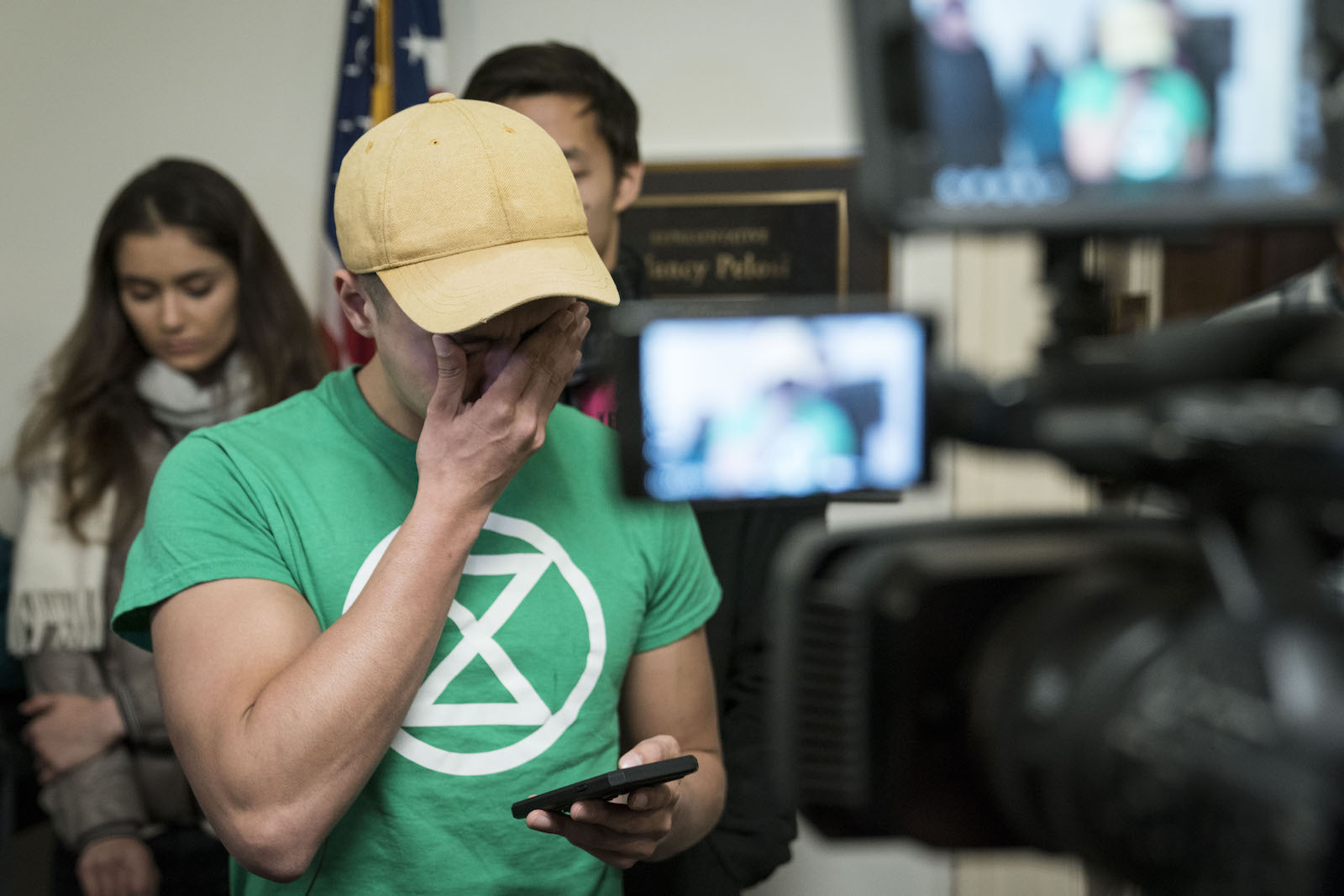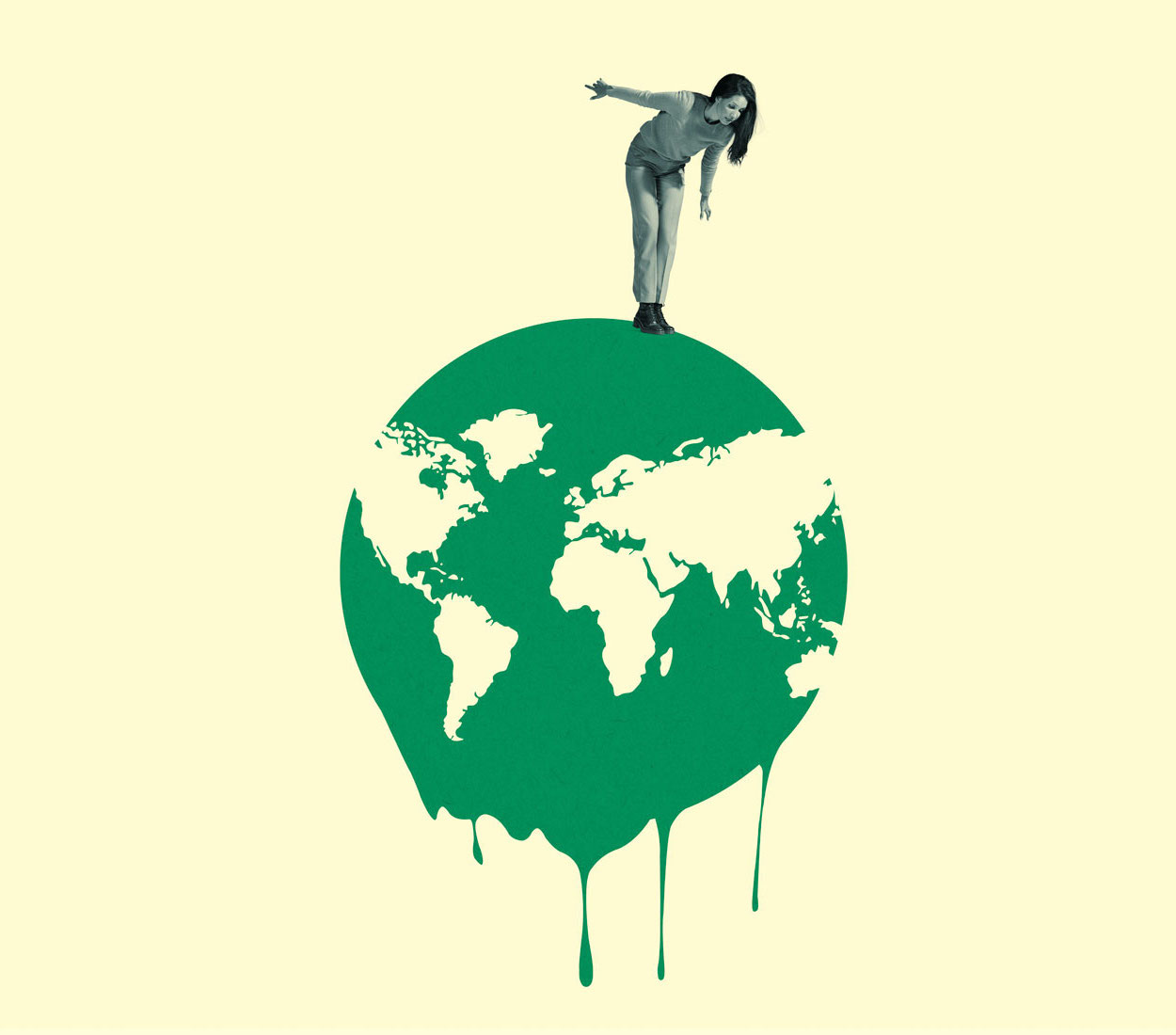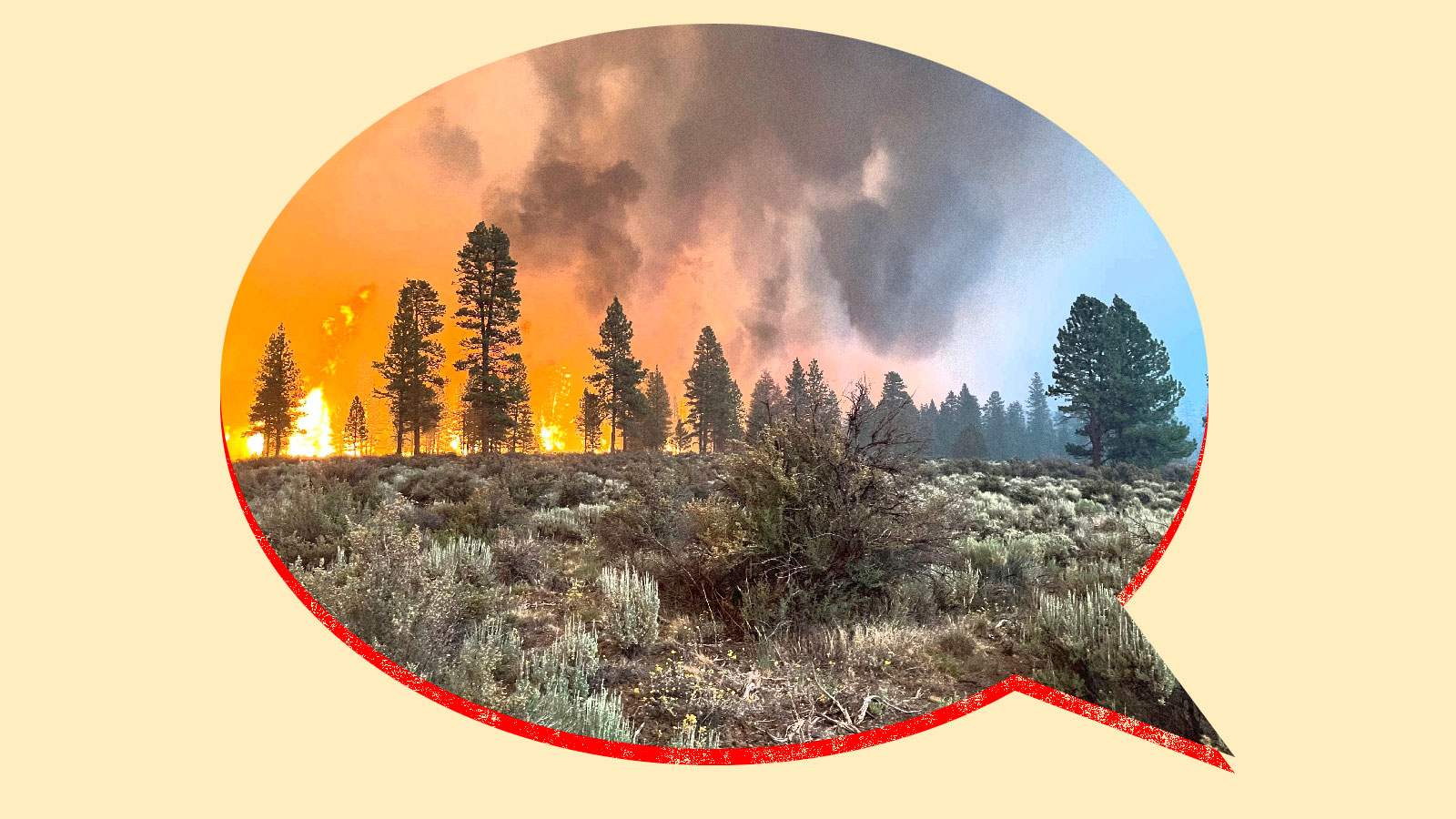It had the feeling of a scheduled fire drill. The release of a long-awaited report by the Intergovernmental Panel on Climate Change on Monday was met with appropriate alarm. The BBC warned that this was “code red for humanity.” The New York Times wrote, “A Hotter Future Is Certain.” A Guardian headline stated that major changes to the climate were “inevitable” and “irreversible.”
Compared to previous versions, the latest U.N. report was unique in its emphasis on climate “tipping points” and used the most conclusive language about the state of climate science to date. The report’s first line was stark: “It is unequivocal that human influence has warmed the atmosphere, ocean and land.” Many advocates hoped that the report would serve as a “final wake-up call” that would inspire “quick and decisive action.”
Underlying most efforts to push for action on climate change is the belief that some combination of awareness, concern, and worry will be enough to inspire people. But what if that premise is flawed? The field of climate communication has devoted countless studies to the question of what emotion — fear, hope, or some other state of mind — will prompt people to call up their elected officials, eat less meat, or do any other number of things to help stabilize the climate. The results have been largely conflicting and inconclusive.
Kris De Meyer, a research fellow who studies neuroscience and geography at King’s College London, argues that all this effort may be misdirected. A long tradition of psychological research, largely ignored in the climate sphere, has found that beliefs don’t drive behavioral change or activism, he said. (In fact, it often happens the other way around — taking action drives beliefs, as people justify what they’re already doing.) And cognitive science has demonstrated that one thing in particular can motivate people to act differently: “social learning,” meaning that we take cues from others. If all the cars in front of you start swerving to the right, are you going to be the one who breaks ranks and hits the pothole?
The U.N. climate report made a splash in the media, but De Meyer said that some aspects of the coverage would likely leave people feeling defeated — particularly the headlines that imply it’s too late to do anything about climate change. The report showed the world careening past the threshold of 1.5 degrees of warming, the goal set out in a special IPCC report from 2018 that got interpreted as the world’s last defense against doomsday.
“If you’re trying to get people to act on climate change, then fear is not going to do it because it is so unpredictable,” De Meyer said, “and because you might push some people towards unhelpful solutions, or you might push them away from acting at all, or from paying attention at all.”

Human behavior is obviously tricky, which is why there are legions of psychologists and behavioral scientists studying it to figure out what’s most effective. “It’s really hard for people to take action, especially for people to take really meaningful action, and for people to take political action,” said Jennifer Carman, a postdoctoral associate studying behavior at the Yale Program on Climate Change Communication. A recent survey from that program found that there was a large gap between the people who were willing to take collective and political action to limit global warming versus those who have actually done it. For instance, 31 percent said they were willing to volunteer with an organization working to address climate change, while 6 percent said they’d actually done so in the last year.
So how do you close that gap? Sometimes, a sense of danger can do the job, De Meyer said, under very specific circumstances. The threat needs to feel personal and directed at you, and solutions to the problem must feel concrete, doable, and meaningful in removing that threat. If those conditions aren’t in place — if a person thinks it’s too late to address global warming, for instance — “you get unintended side effects,” De Meyer said.
While there are plenty of examples of people who have become activists or switched to a lower-carbon lifestyle because of scary messages, De Meyer says that many skeptics have become skeptical in part because they didn’t like that messaging — “because they looked at it and said, ‘These people are trying to manipulate me.’” What proponents of fear-inducing messaging “don’t look at is the strife and division that has been created by some of that messaging,” he said.
And this kind of “code red” language — a phrase repeated in many headlines, and one of the top Google searches related to climate change for this week — can be polarizing even among people who accept that there’s a problem. For the people who think crossing the 1.5-degree boundary is a threshold of doom, De Meyer said, they may be pushed toward more controversial solutions, like geoengineering, furthering divides even among the people who accept that there’s a problem.
This doesn’t mean people should stop talking about the threat of a warming planet, but simply that inspiring the masses to act calls for a different strategy. What’s missing from the picture, De Meyer said, are concrete examples of how to take action — not just a menu of items like “ditch your car for a bike, or organize a protest!” but, to extend the metaphor, the cookbooks and cooking shows that demonstrate how to do these things in-depth.
To be sure, the IPCC report did prompt some people into action — on their keyboards. Google Trends, which tracks search terms that suddenly surge in popularity, revealed a global populace split between freaking out about climate change and wanting to do something about it. Search trends indicate that people were Googling “how to survive climate change” and “how high above sea level am I?”, along with questions like “how can I help with climate change?”
The questions people were Googling haven’t yet been answered satisfactorily, De Meyer said. “The things that come up don’t feel meaningful or they don’t feel doable … That’s why people keep on asking that question again and again and again.”
Carman notes that the percentage of people who are acting, while seemingly small, translates to millions upon millions of Americans who are already calling up their representatives and signing petitions. And the more visible these actions become, the more likely others are to follow. Social norms come up over and over again as key to affecting people’s behavior, Carman said. In other words, peer pressure could help save us all.




